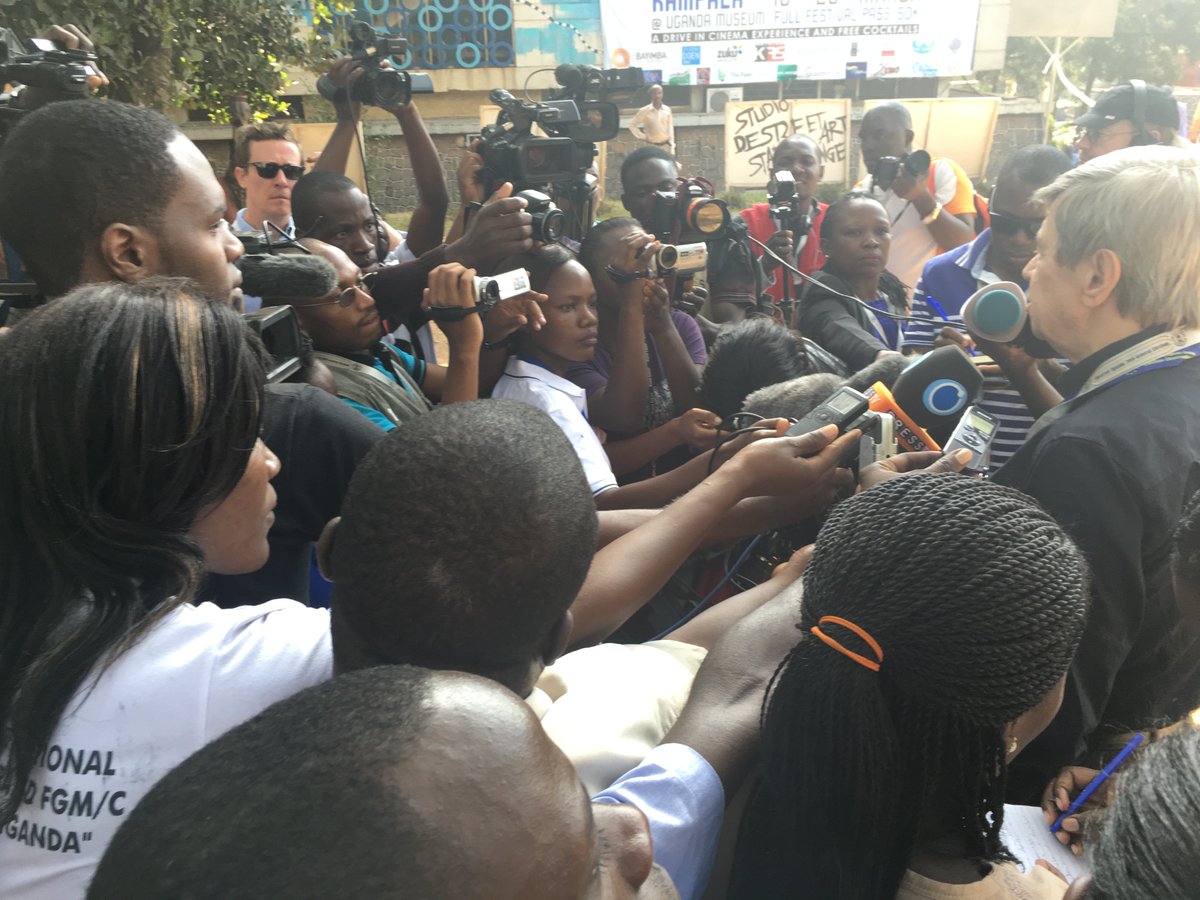Almost a year since the European Union (EU) election observer mission chief to Uganda Eduard Kukan poked holes into the conduct in which Ugandan polls were conducted, the political and economic union of 28 member states has deployed an Election Follow-up Mission to Uganda from 5 to 8 March 2018 t to follow up on its recommendations on the 2016 election, a senior official revealed.
The EU Press and Information Officer Political Section Emmanuel Gyezaho on Monday 6 said in a statement that they were on invitation by Ugandan authorities.
Mr. Gyezaho explained: “The invitation was extended by the authorities of the Republic of Uganda, and in line with European Union’s continued engagement on accompanying elections in Uganda after a preparatory phase and experts’ presence on the ground since 26 February.”
The team will again be led by Mr Eduard Kukan, Member of the European Parliament (MEP) from Slovakia.
“The EU stands by Uganda in strengthening democratic principles,” said Mr Kukan. “Since 2006 we have accompanied elections in Uganda. Now is the time for opposition and government to rebuild trust ahead of the coming elections,” he said.
The EFM was tasked to assess the implementation of the 30 EU EOM recommendations, within the context of the current political developments and the next electoral cycle. The EFM will hold meetings with representatives of the authorities, political parties, media and civil society. The EFM will also meet representatives of the international community. The EFM will publish its report in the coming weeks, upon its conclusion.
Concerns raised, Uganda adamant
Last year, Mr. Kukan’s team noted that the Electoral Commission lacked independence, transparency and the transparency of election stakeholders.
“The EC (electoral commission) lacks independence, transparency and the trust of stakeholders,” Kukan, told reporters in Kampala on Saturday, February 20, 2016.
He said the dominance of the political space by President Yoweri Museveni’s ruling National Resistance Movement (NRM) party “distorted the fairness of the campaign and state actors created an intimidating atmosphere for both voters and candidates”.
The EU Observers also raised concern about the tallying process which is described as slow and lacking transparency.
Jo Leinen, the Chief of Delegation of the team from European Parliament said the same observations were made during the 2011 elections. But he deplored that fact that the recommendations made were not implemented.
The European Union therefore fell short of declaring that the election was not free and fair. The EU EOM’s assessment of the electoral process is independent of any EU institution or member states. It’s purpose is to offer an impartial assessment of the elections and their compliance with Uganda’s international and regional commitments with regard to elections, as well as with Ugandan law.
But no substantial Electoral reforms have been instituted in the country since the conclusion of the 2016 elections.
Parliament only passed a private Member’s Bill to lift the Presidential term limits. MPs in the Constitutional amendment Bill later assented to by the President also extended the Parliamentary term from five to seven years.
Justice Minister, General Kahinda Otafiire had been adamant to table before Parliament a comprehensive Bill for the electoral reforms as suggested by the EU Observer Mission, other election observers and the Supreme Court directives arising from the Uganda Presidential Election Petition No 1 of 2016.
The court identified 10 key reforms the Attorney General to implement ahead of the next elections.

The EU Election Observer Mission operates in accordance with the United Nations’ 2005 ‘Declaration of Principles for International Election Observation and the EU Code of Conduct for Observers’ that requires them to maintain strict impartiality and neutrality, and to abide by Ugandan law.
In Uganda observers started monitoring elections with the December 1980 elections which was later disputed and compelled President Museveni to go to the bush.
Since then, foreign observers have been witnesses to subsequent elections in Uganda.











